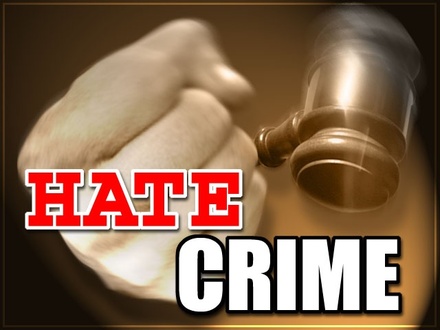A lot of people have asked me about hate crimes laws ever since a Penn State student was recently charged with ethnic intimidation, terroristic threats, simple assault, stalking, disorderly conduct, public drunkenness and underage drinking following an incident in which the defendant allegedly verbally and physically assaulted a student of East Indian descent. Not surprsingly, the defendant was highly intoxciated. The felony ethnic intimidation charge was dismissed by a magisterial district judge, but was then refiled by the Centre County District Attorney’s Office, with the hopes that a different judge will bind the charge over for trial.

Pennsylvania does not have any offenses officially called “hate crimes.” Rather, the term, “hate crime” is a creation of the media and activist groups, not law makers. Pennsylvania does, however, have a crime known as ethnic intimidation, found at section 2710 of the Pennsylvania Crimes Code, and this is the crime normally charged in situations, which the media and activists refer to as “hate crimes.”
Ethnic intimidation is, for lack of a better term, an add-on crime. This crime cannot exist independently, like a normal crime. It is filed along with other crimes, if law enforcement believes that a crime was motivated by “malicious intention” due to the victim’s race, color, religion or national origin. The Pennsylvania General Assembly chose the awkward term “color” even though no biologist, anthologist or social scientist in the modern world would ever use the term “color” to classify groups of humans. Underlying offenses include crimes of violence like aggravated or simple assault, or property crimes like arson, criminal mischief or criminal trespass.
Ethnic intimidation is graded one degree higher than the underlying offense. Thus, if an underlying offense of criminal mischief is a mere summary offense, the accompanying ethnic intimidation charge would be a third degree misdemeanor, while a first degree misdemeanor terroristic threat motivated by racial hatred would be accompanied by an ethnic intimidation charge graded as a third degree felony.
Only ethnic and religious groups are protected by the ethnic intimidation statute. Crimes motivated by political orientation, gender or sexual orientation are not covered by any special law in Pennsylvania.
Matt McClenahen is a criminal defense attorney in State College, Pennsylvania, home of Penn State University. http://www.mattmlaw.com/Criminal-Defense-Overview/Alcohol-Offenses-DUI.shtml

